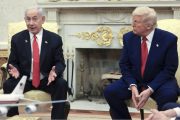
On September 9, Dmytro Lubinets, Ukrainian Parliament Commissioner for Human Rights, declared that Ukraine plans to amend conscription laws to draft citizens whose health problems had hitherto made them suitable only for limited military duty, assuring simultaneously that the people unable to fight on the front line will help in the rear.
Lubinets’ announcement came as Kyiv’s ailing counteroffensive has met with what Moscow claims are “catastrophic” losses.
Lubinets revealed that he had suggested that the Ukrainian National Security Council do away with the category “fit for limited military service,” elaborating that top officials had supported his proposal.
“A Ukrainian citizen must either be fit for military service, or not,” the commissioner explained, stating that a potential conscript with health issues that could prevent him from active combat can still serve at headquarters, or in missile or cyber forces.
He pointed out that the Ukrainian authorities had encountered numerous cases in which potential draftees bribed conscription officials to be falsely classified as unfit for military service, whereas people with grave and chronic medical conditions were told that they were fit for limited duty. “This issue should be addressed,” he highlighted.
Since the outbreak of the Russo-Ukrainian conflict in February 2022, Ukraine’s conscription system has been constantly slammed for widespread corruption. Last month, the Financial Times reported that some male Ukrainians were paying up to $10,000 in bribes to dodge the military draft.
Ukrainian leader Volodymyr Zelensky recently purged all of the regional military conscription officials after a series of corruption scandals, and in the wake of the sackings, Kyiv announced that it would evaluate all draft exemptions granted to men after February 2022.
David Arakhamia, parliamentary faction leader of Ukraine’s governing party, Servant of the People, suggested last week that Ukrainian law enforcement agencies should demand the return to the country of men of military age who had unlawfully fled Ukraine to escape military deployment. With the war against Russia costing thousands of lives, the Ukrainian leadership is stepping up its efforts to recruit soldiers. But there are more and more reports of men fleeing the country to avoid military service. “These people could be mobilized and increase the ranks of our armed forces, thereby strengthening our defense and security,” Fedir Venislavsky, a member of the Ukrainian Parliament’s National Security, Defence and Intelligence Committee said.
According to Polish news outlet Rzeczpospolitej, data supplied by Poland’s Border Guard showed that 2.87 million Ukrainian adults entered Poland between February 24 last year and August 31 this year. Around 80,000 men aged 18-60, who were potentially eligible for military service, had entered Poland, and their whereabouts are presently unknown.
Based on statistics from Eurostat, 17.7 percent of the 4 million Ukrainians who have been given temporary protection in the EU since the start of the crisis last year are men aged 18-64. The eligibility of these men for military service remains unclear.
According to the Exxpress news outlet, while there are about 14,000 Ukrainian men aged between 18 and 54 who have been registered as refugees in Austria, Vienna has explicitly declared it will not deport any of them. “That would be a massive interference in our sovereignty, we would never do that,” a spokesman for the Austrian Interior Ministry told Exxpress on September 7.
Prague has pointed out that Czech law does not cover extradition treaties with regard to crimes of a military or political nature. “Such a request would likely contravene Czech law, making it impossible to approve it,” the Czech Justice Ministry declared in the Prague Monitor.
Likewise, the German Interior Ministry has registered over 200,000 men in the same age group since the start of the conflict. Tareq Alaows of the human rights group Pro Asyl told Deutschlandfunk that evading conscription is a human right, hence, the German government should not acquiesce to Ukraine if Kyiv were to demand Germany extradite Ukrainian men.
Ukraine’s move to enlarge its military draft comes in the wake of Kyiv’s counteroffensive, which has been going on for over three months but has failed to make any palpable progress. Moscow claims that Kyiv has lost around 66,000 troops since the beginning of the offensive. Zelensky proclaimed a general mobilization, and military reservists between the ages of 18 and 60 are eligible for conscription. The number of Ukrainian men who have successfully avoided mobilization and sought refuge abroad has been estimated to be in the tens of thousands, but there are no official figures to prove or disprove the estimation.
Although men with disabilities and illnesses are mainly exempt from the draft, the Hungarian-language Ukrainian news website Kárpáti Igaz Szó reported that the Ukrainian Ministry of Defence recently added to its list of illnesses that are no longer deemed as serious enough to prevent men from enlisting. These illnesses include clinically cured tuberculosis, viral hepatitis, asymptomatic HIV, and mental and neurological disorders that result in minimal pain.
Euronews recently reported that G.O.A. Tactical, a private tactical and security training firm based in Lleida, Spain, has started recruiting soldiers for Ukraine. “Our company has contacts with defense ministries all over the world, including Ukraine. What we do is evaluate a person who is interested in fighting and give them the contacts so they can get in touch with them,” Francisco Galván, director and head trainer of G.O.A. Tactical, divulged.
According to its website, the firm began hiring for Ukraine after one of its previous trainees, who had joined Ukrainian forces, returned to Spain for a break with a request from Ukrainian authorities to return to fight with a few more good men.
The company — the only one in Spain known to be helping to recruit volunteers for Ukraine — publicized its recruitment offer a week ago, and has already received 200 applications, it declared to the media. Roles in the Ukrainian International Legion can have salaries ranging from 1,800 euros monthly for a job behind the front lines to 3,400 euros monthly for a front-line job in an elite unit. Candidates must also have at least two years’ military, police, or private security experience, and pass an examination of their battlefield skills.
The firm, which also gives training to security forces in Peru, Africa, Spain, and Latin America, does not function as an employment agency for foreign armies. Rather, it assesses a person’s battlefield preparedness in a five-day course and certifies those who pass the course. The candidate would then reach out to the foreign army himself.
“It is the volunteer who has to call them directly, but our contacts are waiting for him. He then shows the validation certificate, and he has the job,” Galván explained to Euronews. The examination costs 700 euros, but those who pass can join armies from Ukraine to Senegal.
Ukraine has been openly recruiting foreign fighters for the International Legion, which is overseen by the Ukrainian intelligence service, since March 2022.




